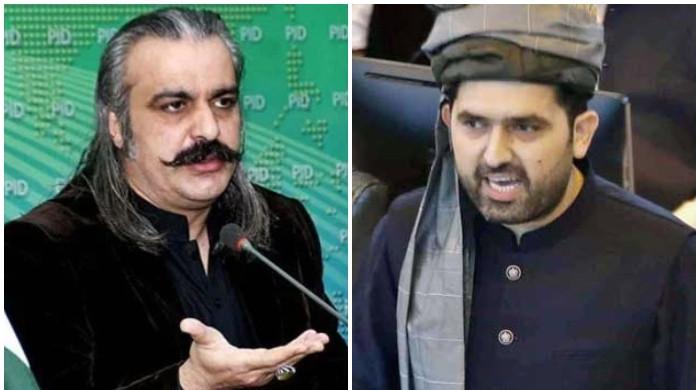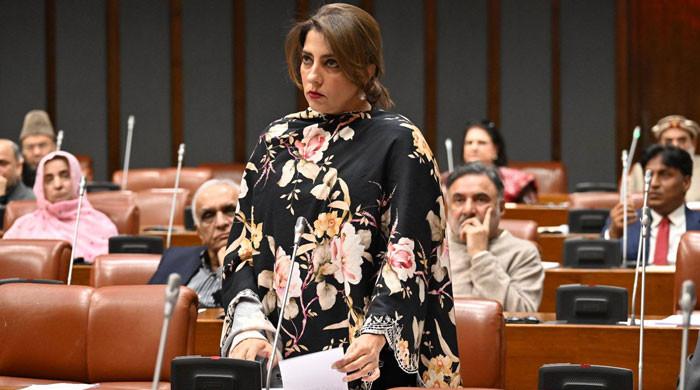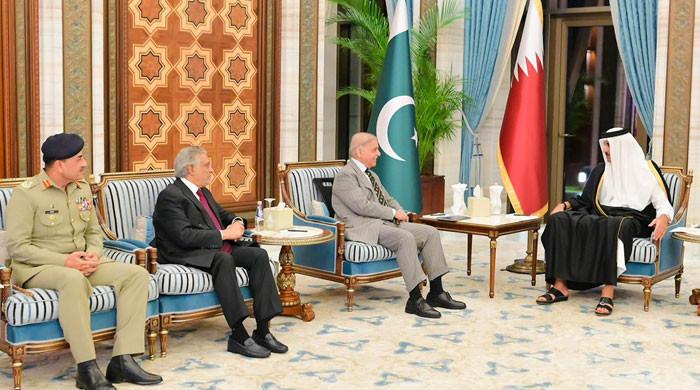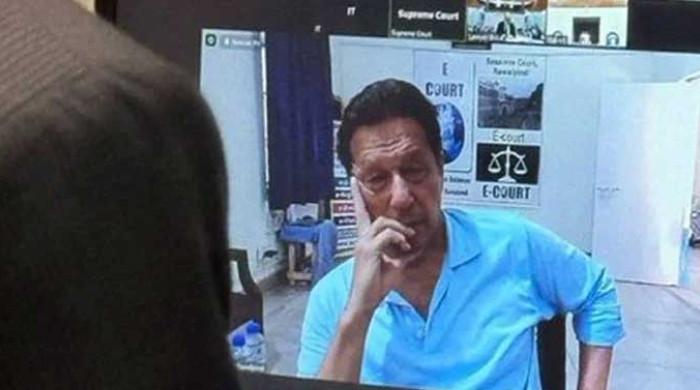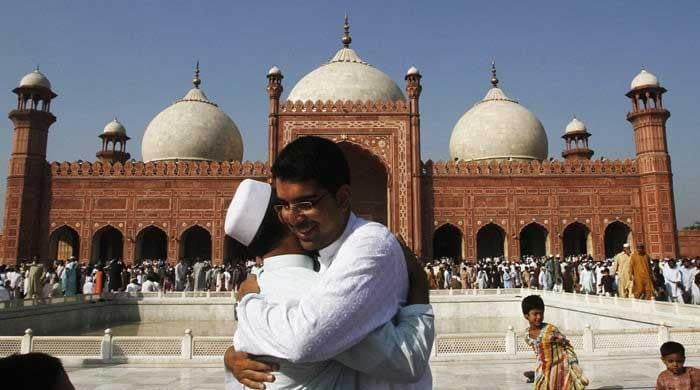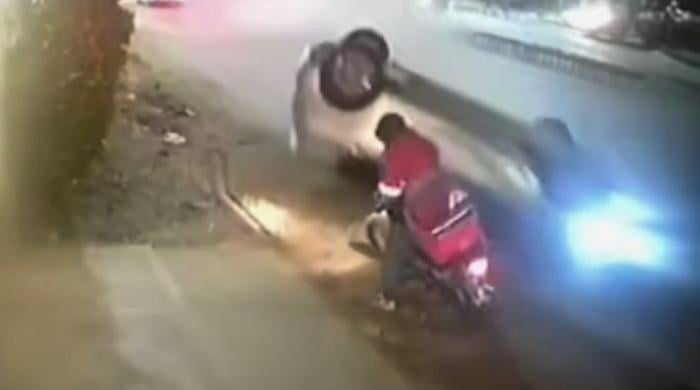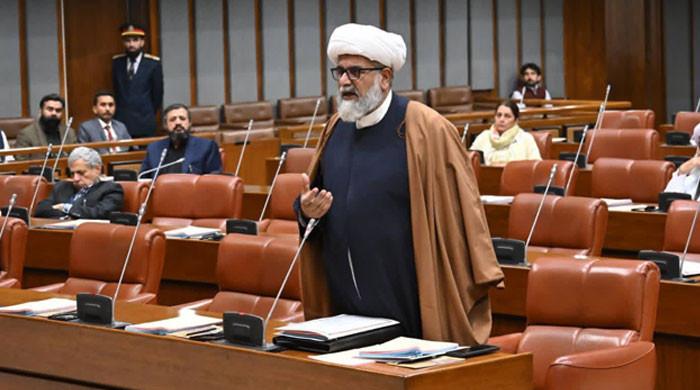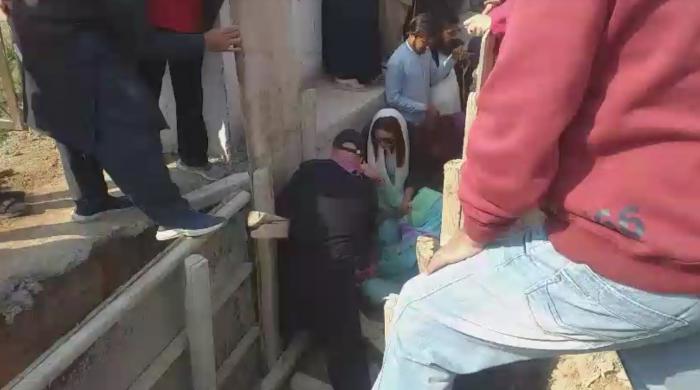Karachi's 'Iron Lady' fixes motorcycles to make an honest living
Having lost her husband and adopted son to disease, Jameela Khatoon took it upon herself to keep her family fed and sheltered
September 04, 2021
KARACHI: My weather app shows me a 'feels like' temperature of a sweltering 40°C, but Jameela Khatoon seems unfazed as she contemplates the task at hand.
Clasping a wrench, she crouches on the ground and focuses her attention on the motorcycle in front of her. She loosens engine bolts, seemingly oblivious to the din and bustle around Ranchore Line’s Poonabhai Tower.
Jameela struggles to make ends meet, but remains intent on making an honest living earning a few hundred bucks selling and changing motorcycle engine oil for customers.
She sets up shop near the popular Lakhpati Hotel. Her setup is not much larger than your average limca stand.
“I have been doing this for the past 35 years,” she says with pride, resting on a stool on the busy road as motorcycles and cars whiz by.
“I do it for my family — for roti, kapra and makaan,” she adds.
Jameela Khatoon says her business is the only enduring legacy of her deceased husband. When cancer took him, and she lost her adopted son to disease, it fell on Jameela to become the sole breadwinner of her house.
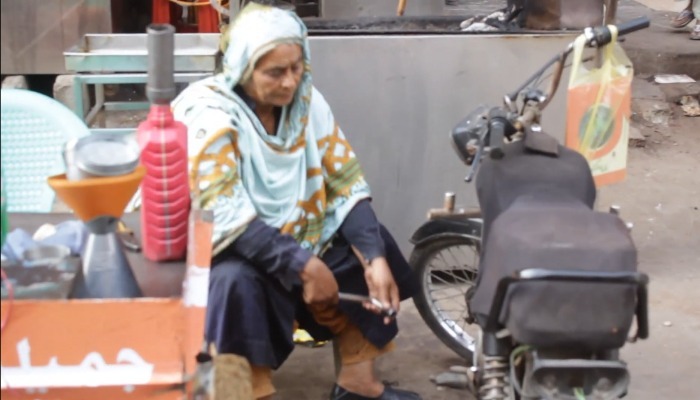
There was a time, she tells me, when she had six labourers to help out.
“But they wanted to take over my business by force. I could not let them do that,” she says.
The mutinous workers threatened her she would "die hungry” if she let them go.
“I accepted their challenge and told them I will not let that happen,” she recalls with a dry smile. “It is due to Allah’s will and His love for me that I am still earning my bread here.”
At home, there are plenty mouths to feed. Jameela Khatoon has four grandchildren and the widow of her adopted son to fend for.
“Ham sab saath may chalte hain (we do everything together),” she says.
When she was younger, Jameela Khatoon also worked as a newspaper hawker. She used to travel from her residence at Ranchore Line to New Chali to collect newspapers at 4:00am in the morning. She and a delivery boy would then deliver newspapers to customers until 7:30-8:00am.
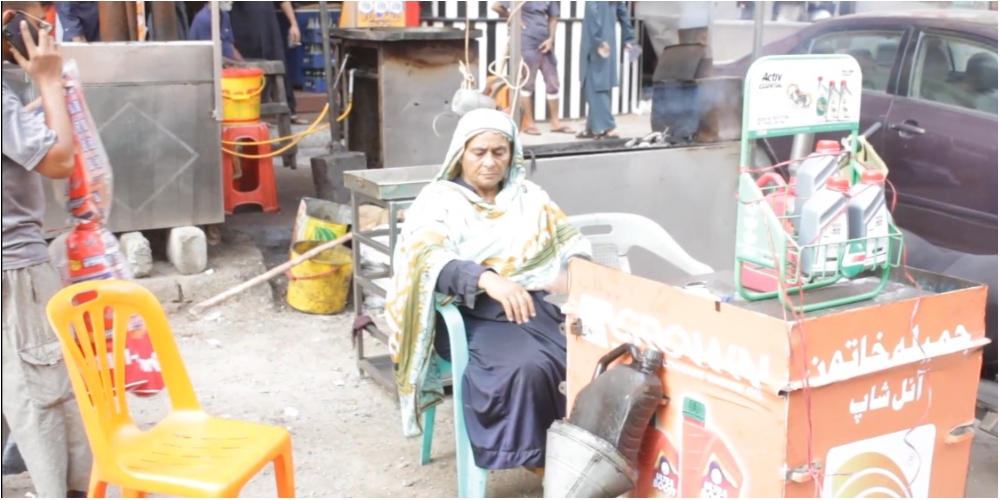
After her newspaper round was over, Jameela would head home to rest for a few hours before she resumed work, changing oil for motorcycles.
Life was easier when she had the labourers working for her. Now, she opens shop at 10:30-11:00 am and goes about her work till midnight.
She travels on foot from her house, located a few streets away.
“Why should I give Rs50 to a rickshaw? Wouldn’t I rather have juice with that money to improve my health?” she asks.
Jameela Khatoon says people who come by to get their motorcycles serviced always treat her with respect.
“They all address me as khaala (aunt), amma (mother), aunty,” she says, but recalls that she faced catcalls and harassment when she was younger.
“It doesn’t happen anymore,” she added.
She tells me that shopkeepers nearby do not bother her.
“I don’t need their support — I give support to them,” she says, adding that if something were to happen to them, she would “stand by them like a wall.”
‘Someone else in my place would have died’
Life became tougher for Jameela Khatoon when she was defrauded of Rs1.7mn by a business partner she had engaged with to diversify and set up a soft drinks venture.
“There were several people whose money I had pooled to invest in the business,” she says.
“They abused me and insulted me [when they found out about the fraud]. I was shattered. If it would have been anyone else in my place, they would have died [of the burden].”
"But I am too stubborn. I refuse to die.”
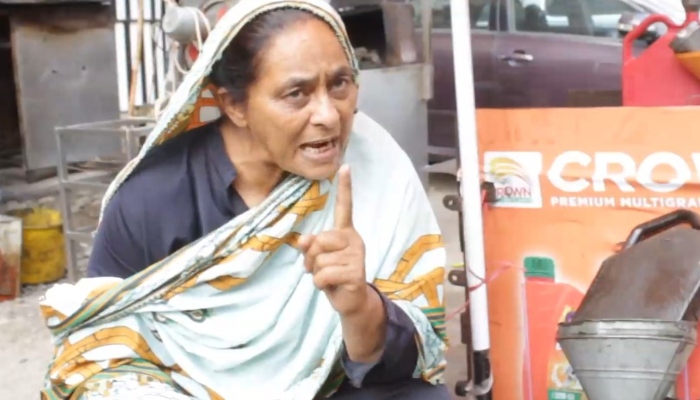
It is clear life has not been easy on her.
She remembers with much pain how her adopted son fell ill and passed away.
“I used to take him for dialysis. I still remember how he used to look at me. He never complained, but his eyes would ask: ‘Mother, why is this happening to me?’”
She offered her own kidney to save his life, but doctors said a transplant was not possible on account of her old age. She was forced to watch him waste away and die.
Yet, Jameela Khatoon remained resolute.
“My son went away; he did not take the life from me,” she says. “I have to continue to do the right things in life. I don’t believe in mourning my losses,” she says.
Jameela says she does all mechanical work, from changing oil to servicing motorcycle engines. A grandson helps out, but Jameela does the difficult work herself.
She pulls up her sleeve to show me her arm.
“Look at the burns on my hand. They're from hot motorcycle silencers,” she says. “I always fix the motorcycle in front of the customer, so that he can see what I am doing. Never behind his back. I have to earn every dime I make in a legitimate way."
Jameela tells me she has never taken a break, not even when the lockdown was in place.
“I used to run my business even when there were [violent] strikes in the ‘90s.Ye mere baap ka road hai,” she says with conviction, but also half-jokingly.
What does she want?
“I wish the government would give me a loan or provide me a shop where I can carry out my work in a better way,” she says. “A shop where I can sell spare parts and fix punctures.”
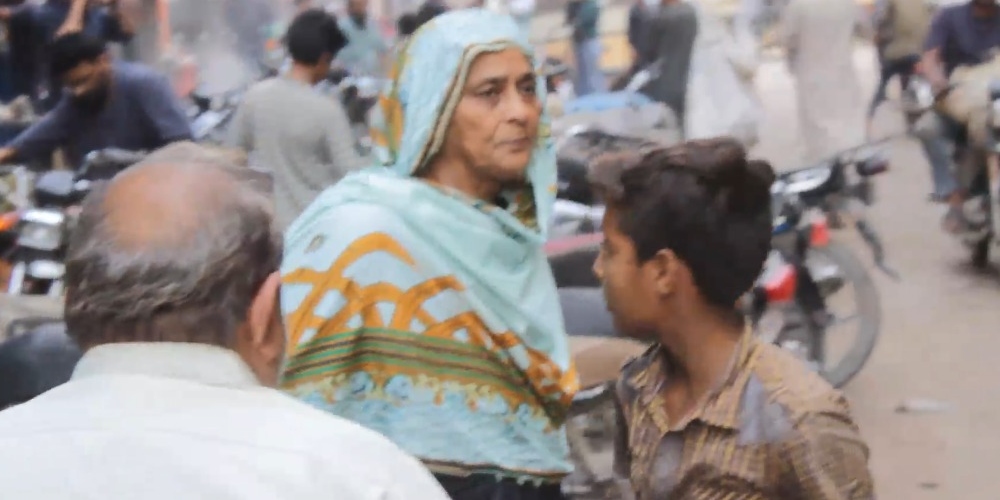
When I ask her if she has anything to say to the government or relevant authorities, she smiles.
“If the government is watching this [video] then I hope it shakes their conscience a bit,” she says.
She hastily bids farewell as another motorcycles parks near her stall. With wrench in hand, she approaches the customer, asking him what needed fixing.




